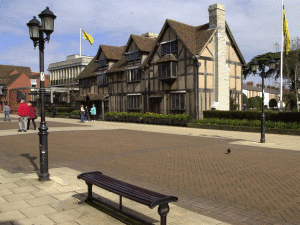WASHINGTON — The 16th-century bard who once wrote a trippy comedy about a group of lovers and actors manipulated by wood faeries that delighted in giving one man a donkey head may have been indulging in the wacky weed when he wrote it.
While there is no direct evidence showing that William Shakespeare, arguably the most famous playwright in history, was smoking marijuana when he penned A Midsummer Night’s Dream, scientists examining items dug from his property at Stratford-upon-Avon in Warwickshire, England, found a number of tobacco pipes of the day buried there with various plant residues — including cannabis.
The pipes containing traces of hemp were found in his garden. Others, with coca leaves, or cocaine, were found on other parts of the property and not in the garden.

Shakespeare scholars are divided on the idea that the Elizabethan poet’s best works, which include Romeo and Juliet and Macbeth, might have been inspired by mind and mood altering drugs. The pipes could have belonged to his famous friends who came to visit Shakespeare and view performances there. The study’s author, Francis Thackeray, says:
One can well imagine the scenario in which Shakespeare performed his plays in the court of Queen Elizabeth, in the company of ( Sir Francis) Drake, (Sir Walter) Raleigh and others who smoked clay pipes filled with ‘tobacco.’ However, there were several kinds of ‘tobacco’ in those days, as indicated in this article. …
Results of this study (including 24 pipe fragments) indicated Cannabis in eight samples, nicotine (from tobacco leaves of the kind associated with Raleigh) in at least one sample, and (in two samples) definite evidence for Peruvian cocaine from coca leaves of the kind which Thackeray … associated with Drake who had himself been to Peru before 1597.
It turns out that in Shakespeare’s case, “What was he smoking?” might be a valid question rather than a sarcastic or rhetorical one.
Read more about the study here.






